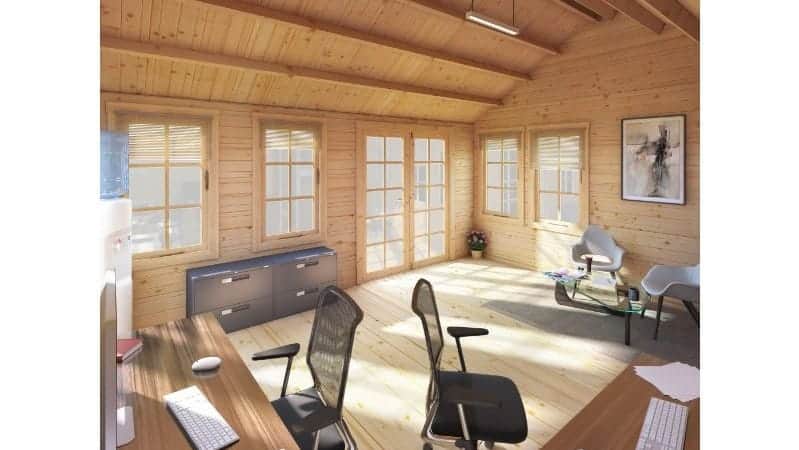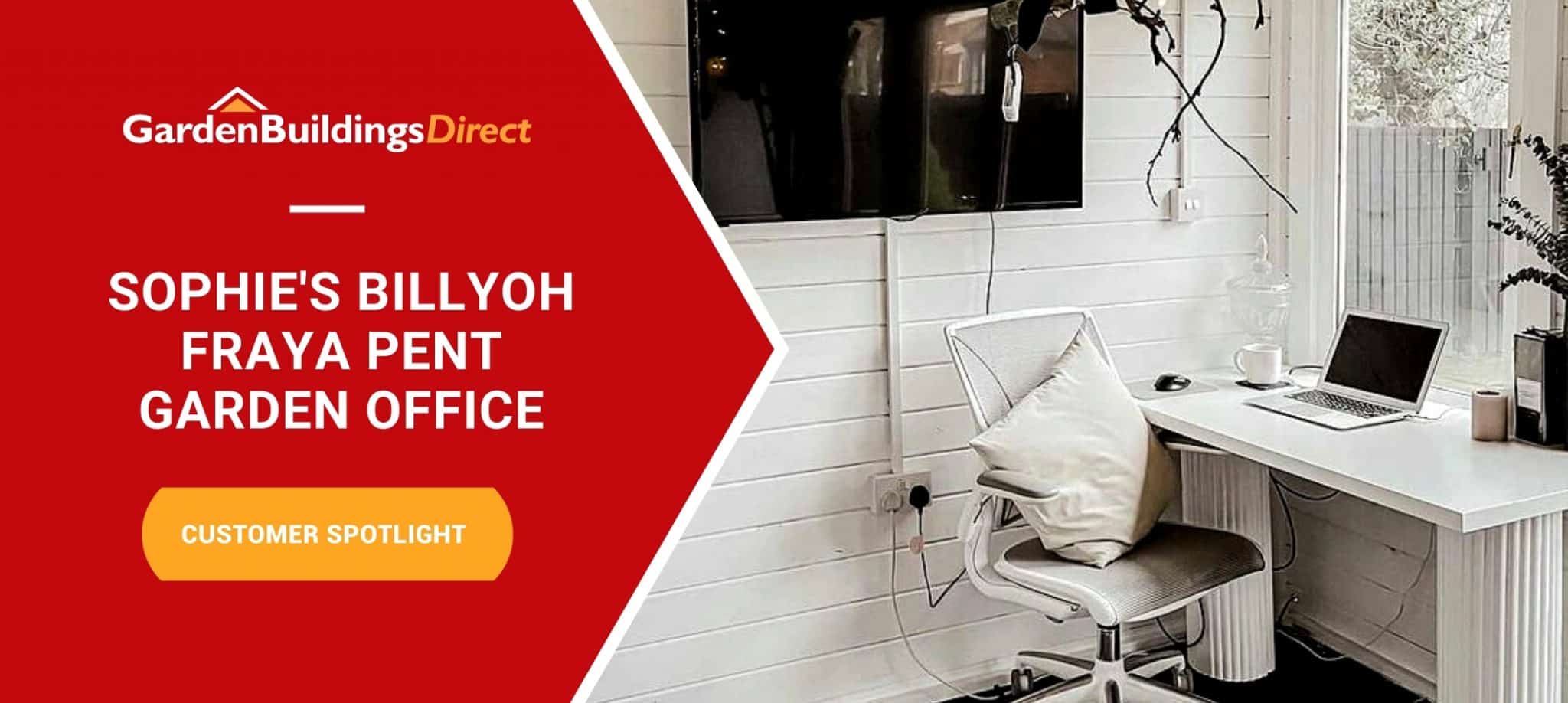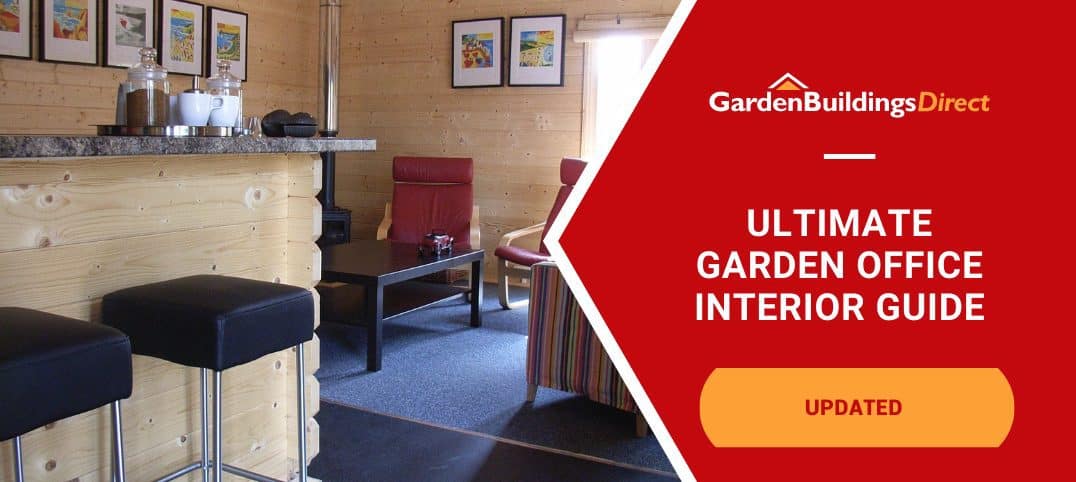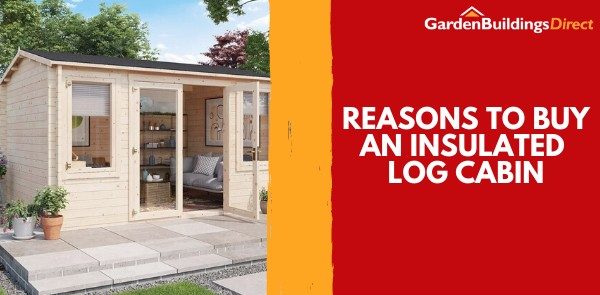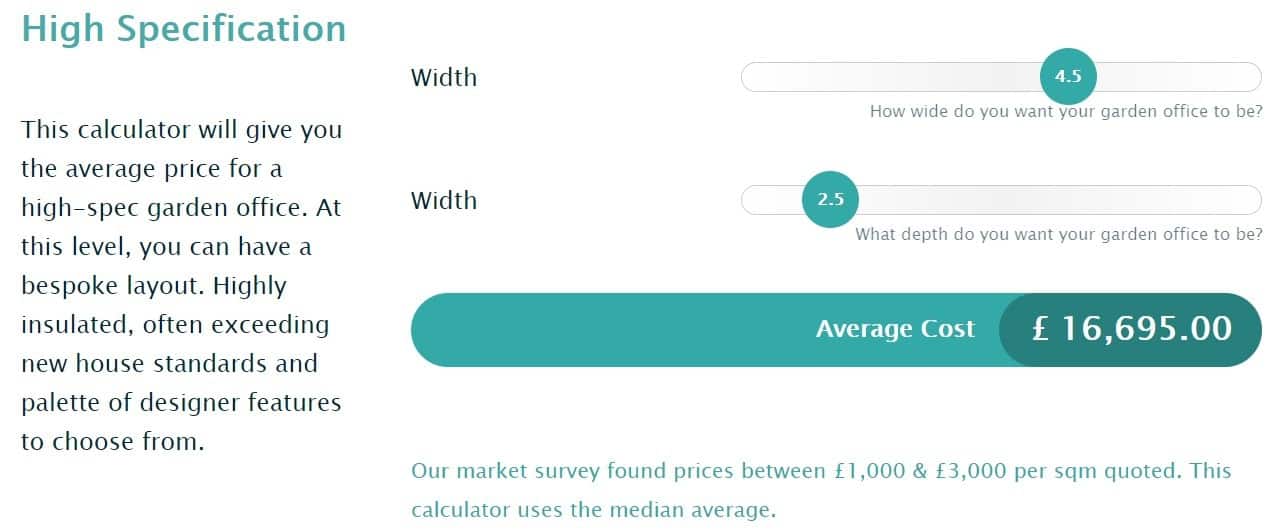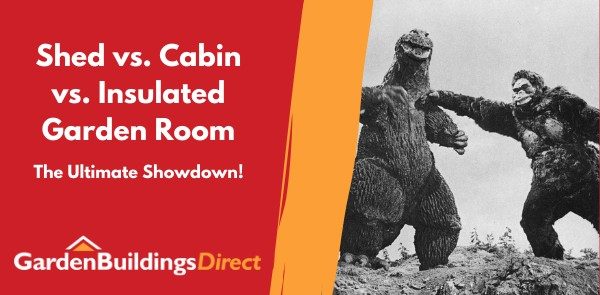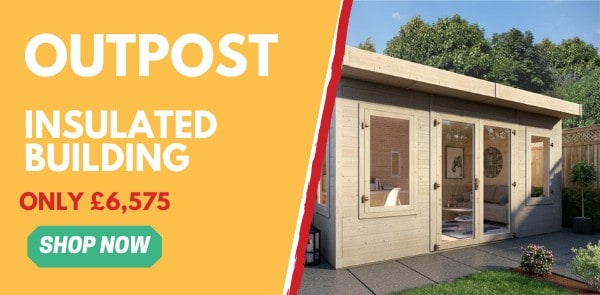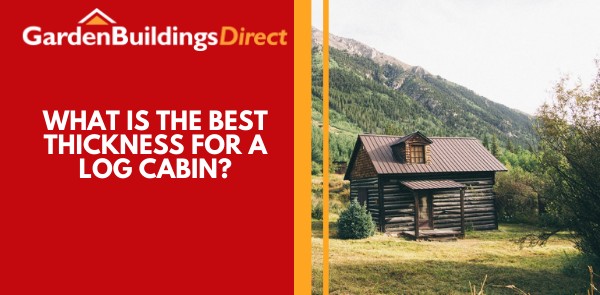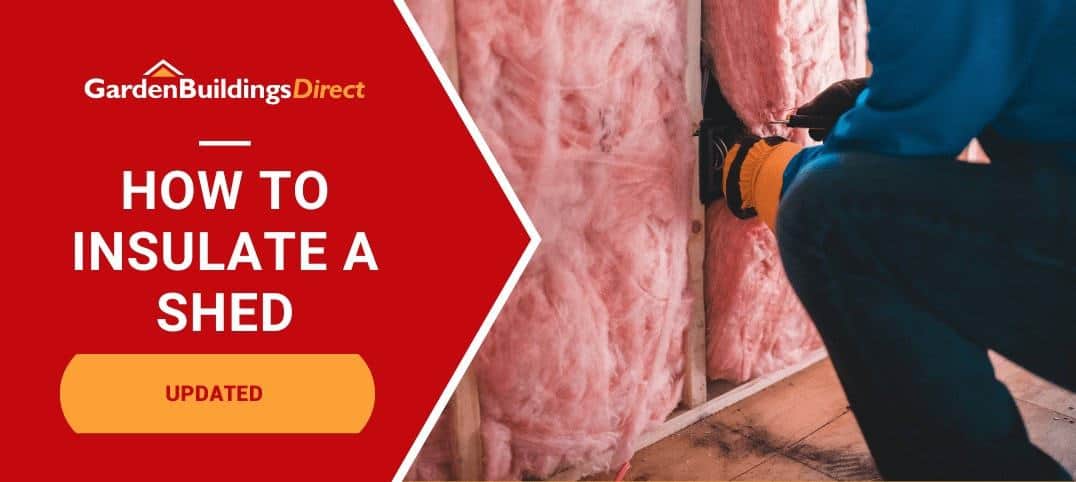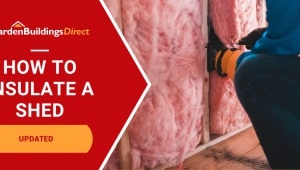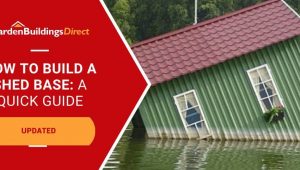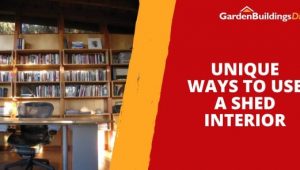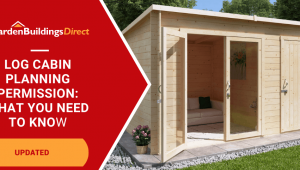Jump to:
Whether you’re thinking of starting your own business or trying to get into shape, a year-round garden office lets you do so from the comfort of your home.
Garden rooms can be customised and transformed into anything from a yoga studio to a home office. But a fully-insulated garden or a premium, insulated garden room can even help you save on commuting and energy costs whilst raising productivity.
To see if garden office pods are the right way to go for you – keep scrolling.
Garden Office Uses:
One of the biggest benefits of outside rooms is their sheer adaptability. Not only do they offer extra space in general if your house or home office is too cluttered, but they offer dedicated space to whatever you use them for.
Working comfortably in the peace and quiet of your micro garden office has been shown to up productivity by around 13%. Let’s have a look at the benefits of a garden workspace:
Garden Office
| Garden Office Benefits | Work-life balance, be closer to home, less clutter, a dedicated and productive space, cheaper than renting office space |
If you’ve got a garden office design then you might be thinking a little bigger than simply converting a garden shed. And creating a bespoke garden office can start to pay for itself.
It’s true that garden rooms do add value – by increasing the square footage of a property’s living space. But it’s the cutting down on community costs and invaluable extra time that you’ll get to spend with family that are some of the biggest draws.
Insulated Garden Office Benefits
If you are thinking of investing in a garden office pod, then make sure that it’s set up for office use. This means:
- Digging or hiring someone to dig a cable trench to hook up your office with electricity
- Marking out your intended office site with stakes to get a feel for the best size building for your needs
- Positioning your outdoor office to maximise on natural light
- Potentially installing pipework to connect your garden room with running water and other utilities
Why not head over to our customer stories to see what they’ve done with their garden office buildings On top of that, we’ve also had customers use their outside rooms as:
| Multi-purpose space | 31% |
| Entertaining and socialising | 19% |
| Hobbies (arts, crafts, and music) | 13% |
| Office | 6% |
| Home gym | 3% |
| Other (children's playroom, garden bar, games room) | 28% |
Garden room uses (From Which)
A Garden Studio
| Garden Studio Benefits | Suitable for a number of uses, a tranquil space for creativity |
The contemporary design of an insulated garden room often lends itself to use as anything from a yoga studio to an art studio. Natural and natural-looking materials blend with most garden designs and buildings with tall doors and lots of windows prioritise a bright, airy interior.
A Home Cinema
| Garden Cinema Benefits | Environmentally-friendlier, comfier, more relaxing, customisable |
If you’re a cinephile or have friends and family that love to watch movies, then an outdoor pod is the perfect space. Create your very own cinema safe in the knowledge that you will reduce your carbon footprint from driving to the cinema.
Your wallet might even thank you in the long run if you factor in fuel, ticket, and snack costs!
Customer Spotlight: Sophie’s Pent Garden Office
Sophie is no stranger to interior decoration and renovations, and her Instagram is jam-packed with aesthetically pleasing projects that she’s completed over the years. Honestly, it’s one of the best we’ve ever seen!
A Home Gym
| Garden Gym Benefits | Multi-functional space, no waiting for equipment, no excuses! |
Creating a home gym in one of our fully installed garden rooms might finally be the excuse you need to stop making excuses!
How many of us join the gym each January only to get put off by trekking through the rain or driving to get a workout in? Well, say goodbye to broken promises with your own home gym. The beauty of a garden gym is:
- No waiting for machines
- No journey to the gym
- Closer to the kitchen and healthy, energy-boosting snacks!
- Build as big (or small) as you want – How about an office-by-day, gym-by-night?
- No prying eyes
So now that you know what you want to do with your insulated garden room, let’s look at decisions to make before buying:
Ultimate Garden Office Interior Guide
The idea of working from home might seem stressful to some, you might not have a set workspace yet, maybe it’s too noisy and you need some peace and quiet.
Guest bedroom
Guest bedroom benefits: A comfortable and private space for visitors.
Proper insulation lets guests enjoy a cosy stay regardless of the weather. It allows guests to unwind and enjoy a good night’s sleep without disturbing the main household. Such a garden room layout makes excellent use of your garden space.
Playroom for children
Playroom benefits: A perfect extension of children’s play area.
An insulated garden office makes for an ideal playhouse for kids. By offering a safe environment, children can play freely and creatively. The temperature control provided by insulation also ensures a comfortable atmosphere year-round. This enables the little ones to engage in indoor activities no matter the weather.
Home library
Home library benefits: Offers a tranquil escape for book lovers!
The structure’s insulation maintains a stable climate. This preserves the condition of books and provides a quiet space for focused reading. Natural light through well-insulated windows also enhances the ambience. In return, it promotes a peaceful reading experience with the beauty of the outdoors.
Insulated Garden Room Considerations
Bespoke insulated garden rooms are going to cost you for quality. So if you only want something to use in the warmer months, consider whether you might be better suited to a summer house.
Size
The first thing you need to decide is – how big do I need my insulated building to be?
- Are you planning on having clients come for meetings or appointments?
- Does your office pod need to house more than one employee (or even business)?
- For leisure: do you want to cater for guests regularly?
35 Reasons To Buy An Insulated Log Cabin
We get a lot of questions about whether it’s worthwhile to invest in an insulated cabin. Our simple answer is always the same: yes. Efficient year-round heat and energy efficiency.
Earlier, we told you to start by marking out a space in your garden and walking around it. Figure out how many people need to be in your insulated office or studio at one time and what’s comfortable.
Ultimately, you want to find a middle-ground between budget and quality where your building starts to pay for itself after a few years. That may be from saving on fuel to the cinema or not commuting which uses up around a whole week of your life and almost £2,000 a year on average!
Our fully-insulated garden room comes in <strong>under-budget on average</strong> for high-spec buildings (Credit)
Budgeting
We said that quality costs, and it does. The best-insulated garden offices also tend to be some of the most expensive.
So first, you need to figure out if a fully-insulated building is within your budget. Look ahead to the future – with minimum 10-year guarantees and 15-year guarantees on our pressure-treated models, a garden office is an investment.
A Full Comparison Of Sheds vs. Cabins vs. Insulated Garden Rooms
Shed, cabin, garden room..it’s hard to know what to pick, isn’t it?
That’s why we also offer finance options at Garden Buildings Direct on minimum spends of £560 and up with a 10% deposit. Remember to factor in the cost of installing utilities in your plan and to check the exact of your insurance policy in case it needs to be updated.

Finance options offered by Garden Buildings Direct
And remember, it’s an investment! The upfront cost will usually be matched by an increase in home value on a pound-per-square-foot basis!
Did you know – An insulated building could save you up to 15 % on heating costs!
The Outpost – The Perfect Insulated Garden Building
Owning a garden building that you can enjoy all year round, regardless of the biting cold or scorching heat is something that many of us dream of.
Design and layout
Thoughtful design and layout optimisation ensures an efficient and inspiring workspace. Proper arrangement of furniture, storage, and equipment fosters productivity. Maximising natural light through insulated windows enhances aesthetics and functionality, to add.
Electrical wiring and lighting
Effective electrical wiring and lighting are crucial for your BillyOh Kent garden office. Adequate power outlets and lighting fixtures facilitate the seamless operation of electronics. Most importantly, they create a comfortable working environment. Overall, this enhances both task performance and ambience.
Heating and cooling systems
Proper insulation contributes to efficient heating and cooling systems. For one, an electric stove heater addition maintains a comfortable temperature during winter.
Heating and cooling units work to provide the best of both worlds! A cosy workspace during cold winters and a cool refuge in hot summers.
Connectivity (Internet, Wi-Fi)
Reliable connectivity is essential for a garden office. A strong internet is essential for remote work or creative pursuits. However, insulation can shield Wi-Fi signals. Thus, planning for proper network coverage within is vital. That way, you can enjoy seamless communication and access to online resources.
Security and safety measures
Insulated garden rooms should prioritise security and safety. Reinforced insulated doors and windows, along with secure locks, deter unauthorised access.
Additionally, fire-resistant insulation materials and smoke detectors contribute to a secure working environment. They offer peace of mind while focusing on tasks.
Insulation Materials
The materials used will differ slightly for insulating metal sheds, log cabins, wooden sheds, and even when trying to insulate a summerhouse.
Your choices include everything from Celotex and Kingspan insulation boards that fit in between wall, floor and roofing panels, to wool insulation. There are even some budget-friendly methods to insulate your office after construction.
Even something as simple as installing a low-energy heater and using a draught excluder can help a bit. Keep scrolling for some quick explanations of what’s on offer.
SIPs and walls
One of the largest surface areas of your outdoor office that has contact with the outside air is its walls. To reduce heat loss at this point of your thermal envelope, you really need some solid insulation.
Structurally insulated panels (or SIPs) are comprised of foam insulation sandwiched between two panels of interior and exterior cladding. They’re a high-quality building material used in residential and commercial construction their benefits include:
- Excellent thermal regulation
- Combats damp and moisture build-up
- Structural strengthening
- Improved air quality
All About Cladding Thicknesses
There are various ranges for your log thickness. Starting at 19mm, going up to 28mm, 44mm and even 65 and 66mm. All of these will offer different strengths and levels of insulation.
Roof membrane
If like our fully-insulated garden office options, your building utilises tongue and groove panels, they’ll need a cover.
Whilst shingles, felt, and even roof tiles are suitable for most garden buildings, a roof membrane can help with temperature regulation as well as offer protection from water ingress and dampness.
For flat roofs, ethylene propylene diene monomer (EPDM) is a top-of-the-range option that’s:
- Fully waterproof
- UV-resistant
- Flexible
- Resistant to becoming brittle due to changing temperatures
Double glazed windows
If you want a bright and airy space in your garden office then it’s a given that you’ll want large windows and even a glass door.
Double-glazed windows are comprised of two panes of glass with a gas-filled cavity between them. Due to the spaced-out particles in a gas, heat transfers more slowly both in and out. This means that your office would stay cooler in summer and warmer in winter.
Doors
As we just mentioned, if you’re investing in a home office, you’ll want glazed doors to see your garden, your kid’s playing, and sunlight in general.
And if you’re entertaining, or hosting clients, double doors act as a real statement piece.
Floor insulation
Contributing to around 10% of heat loss, the floor is another area to consider when buying or building a fully insulated garden room.
Kingspan or foil-backed logs and pressure-treated bearers can help to reduce heat loss and combat moisture build-up from the ground.
Treatment
Whilst pressure treatment can help combat dampness in flooring, it won’t necessarily improve the insulation of your office. Wood treatment can, however, protect your insulated garden building from harsh weather conditions in wet and cold winter months.
Another option would be to buy an insulated garden office made from composite cladding. Composite cladding is extremely low maintenance with no need for treatment and waterproof qualities that make it perfect for exterior walls.
Customer Spotlight: Sophie’s Home Office
This week, we caught up with property developer Kirsty, to see how she had transformed her BillyOh purchase.
Environmental Impact
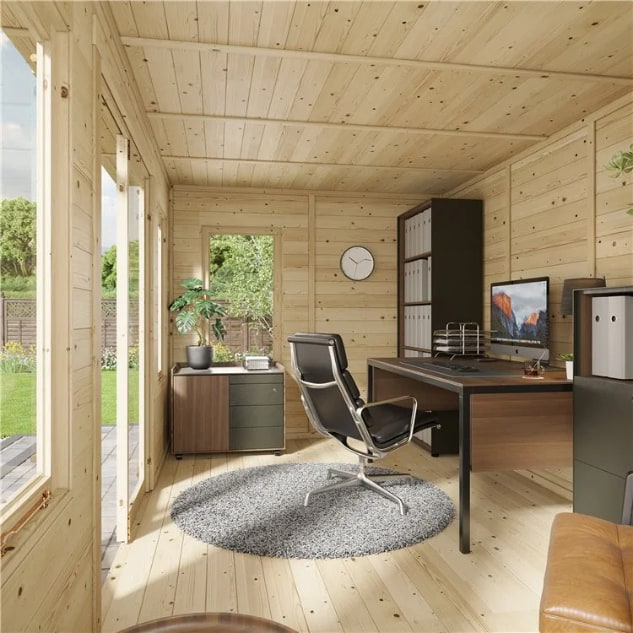
The environmental impact of an insulated garden office presents a significant advantage. At its core, it aligns with eco-conscious living and sustainable practices. Several factors contribute to this positive influence, making it an eco-friendly choice.
Energy efficiency
Proper insulation reduces the need for excessive heating or cooling. This minimises energy consumption and lowers carbon emissions in return. Overall, this efficiency contributes to a reduced ecological footprint.
Reduced commuting
Working from a garden office reduces commuting, lessening traffic congestion and air pollution. This shift promotes greener transportation habits and contributes to cleaner air.
Sustainable materials
Opting for eco-friendly insulation materials reduces resource depletion. Great examples are recycled or natural options, which minimise environmental harm during production.
Solar potential
An insulated garden office can be designed to incorporate solar panels. Meaning it can harness renewable energy to power the workspace. Moreover, it can potentially feed surplus energy back into the grid.
Longevity and adaptability
Durable insulation materials extend the lifespan of the garden building. This reduces the need for replacements and associated resource consumption.
Low maintenance
Proper insulation can lead to fewer repairs and maintenance. This results in reduced waste and the use of materials in the long run.
Planning Permission
Depending on the size of your operation, you may want to select an office that’s spacious enough but doesn’t require planning permission.
A garden room can also be a great alternative to extending your main house, with no need to wait for permission or material wait time. As such, all garden buildings from Garden Buildings Direct as measured and designed to adhere to planning regulations.
Our buildings fall under what’s called ‘permitted development‘ and won’t require planning permission unless:
- You plan to use it for permanent residential use (like a garden bedroom)
- It takes up more than 50% of your garden space (as it was first built or as it stood on 1st July 1948)
- It’s built past the principal wall of your main house
Otherwise, our offices and outbuildings are single-storey. They’re also built with eaves and ridge heights for both flat and dual-pitched roofs that satisfy ‘permitted development’ requirements. These planning regulations may vary due to where you live and whether or not previous owners built extensions.
Garden Buildings Direct
So now you know a little bit more about garden offices including:
- Their uses
- How they’re insulated
- What to consider when buying one
- The benefits of an insulated garden office or studio
All you need to do now is check out our garden log cabins in a wide range of sizes to learn more. Or, simply head over to our fully-insulated garden office.
Guarantee, Delivery & Installation
Our insulated garden office selection comes with a 10-year guarantee against rot. The BillyOh Outpost Insulated Building sets a prime example.
With free UK delivery, simply enter your address and customise your garden building. Thanks to the ease of installation, you can assemble it using our instruction guide!
What you should read next: Insulated Log Cabin Advantages: Why You Need One
FAQs
How does insulation work with an EPDM roof coating?
EPDM roof coating, as used on our fully-insulated garden office, is a rubber membrane that stretches across the roof. Resistant to becoming brittle in changing temperatures, UV rays, and water, it offers waterproofing and insulating qualities.
How do I install insulation in my garden office?
Depending on the size, material, and construction method used in your garden office this will vary. To insulate a garden office you will need to protect the walls, roof, floor, window and door frames, and any exposed areas. Your options include using a vapour barrier membrane, using insulation batts or boards in the floor, wall, and roof cavities, and sealing any gaps with caulk.
If you have already built your garden building, this will be a lot harder. If you're looking to build a garden building you should consider consulting a professional installer or opting for a ready-insulated office.
What's the best insulation for a garden office?
Different insulation materials may work better or use due to their malleability (to fit in awkward spaces) and U-value (how well they block thermal transmittance). Other factors like price and whether or not they're comfortable and easy to work with (like fibreglass insulation which we'd advise against) may inform your decision.
For our fully-insulated garden office, we like to use EPS foam insulation for its structural integrity and lightweight and insulating properties.
Do I need planning permission for a garden office?
No - our garden offices have been measured and designed to fall under 'permitted development' - meaning they won't require planning permission. This may vary due to where you live, where you plan o situate your office, and how much of the original garden space it'll take up. We advise consulting our guide to planning permission on our blog or your local council before buying.
What insulation do you use in your cabins?
Our log cabins and garden offices come with various cladding thickness options for better structural integrity, weather protection, and insulation properties.
Our Outpost insulated cabin comes with:
- Fully Insulated With High-performance Multi-foil Insulation
- 14mm Double Glazed Windows For Year-Round Use
- Thick 66mm Insulated Panel Construction
and our fully-insulated garden office comes with:
- 65mm foam-insulated walls
- Fully Insulated With High-performance Multi-foil Insulation
- UPVC 27mm Double Glazed Doors and Windows
- 19mm log floor foil insulated as standard
- 45mm Foam Roof insulation, with 11mm Tongue and Groove boards
- High performance and protective EPDM rubber roofing
How much value does a garden room add?
Garden rooms can add around 1.5x their own value to your property. They can be a draw to potential buyers who don't want to or can't build an extension due to time and financial restraints. However, the real way you'll make money back on your garden office is by using it yourself and saving on community costs, gym memberships et cetera whilst gaining invaluable time closer to home.
